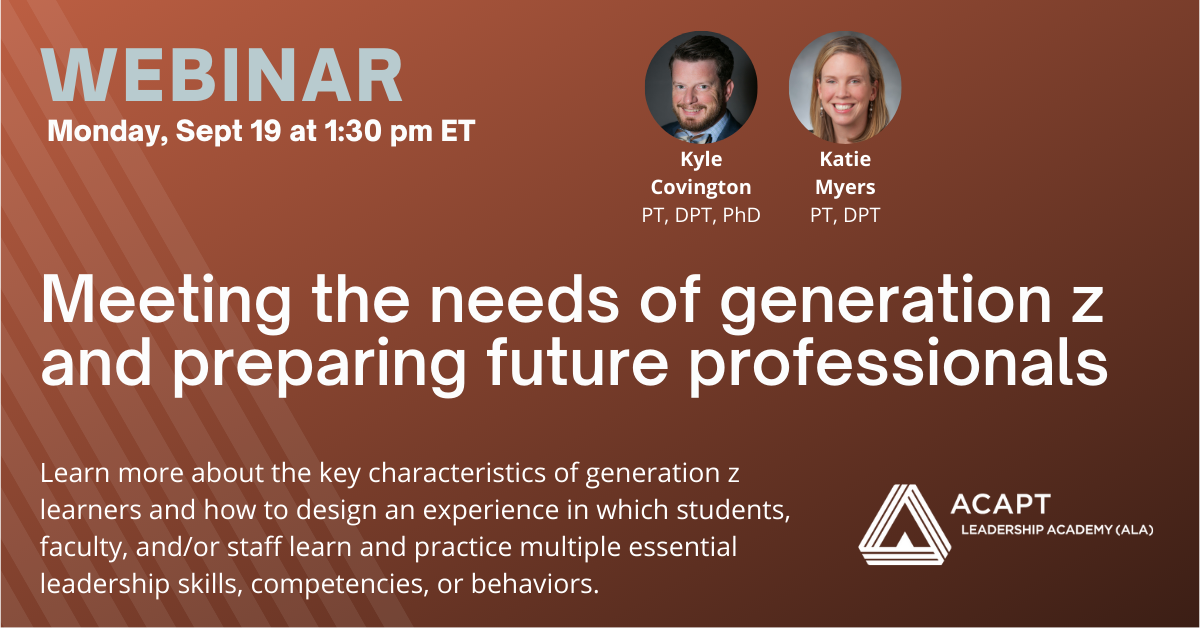Meeting the needs of generation z and preparing future professionals
When:
This webinar is presented by the ACAPT Leadership Academy (ALA).

Today’s physical therapy student likely identifies as “Generation Z”. They prefer a collaborative approach to learning and drawing from the experiences of others to deepen their learning. Designing learning experiences that integrate these unique needs is important to develop the physical therapy student as an adaptive learner. The 2017 National Study of Excellence in Education identified 9 priorities for transforming physical therapist education, including creating adaptive learners.
Adaptive learners assume responsibility for their learning and develop a lifelong commitment to learning. The traditional approach to physical therapy education may over utilize traditional knowledge acquisition approaches with less emphasis on facilitating the development of adaptive learner characteristics. The presenters will review key characteristics of generation z learners and discuss examples of curricular and programmatic design with these considerations in mind.
Target audience: Faculty, academic administrators, directors of clinical education, clinical instructors.
CEU: 0.10 (available post-webinar following the completion of an assessment through APTA's Learning Center)
Fee
- $20 for ACAPT members (includes recording)
- $30 for non-members (includes recording)
- Recording will be available post-webinar ($20- ACAPT members; $30-non-members)
Learning objectives: The following objectives are in the Developing, Relating and Influencing category of the Leadership Compass.
- Discuss factors that serve as motivators for the full array of individuals that represent different generations in the workplace. (Developing)
- Demonstrate strategies to build resilience in students and colleagues. (Relating)
- Adapt personal communication style to match style(s) of others to foster success in collaboration, negotiation, and influence. (Relating)
- Design an experience in which students, faculty, and/or staff learn and practice multiple essential leadership skills, competencies, or behaviors. (Influencing)
Related resources
Presenters
- Kyle Covington, PT, DPT, PhD, Duke University
- Katie Myers, PT, DPT, Duke University
Registration
To receive the ACAPT member rate, you must log in to your ACAPT account. If you don't have an account, you can register for free here. When you create your account, ACAPT will review and approve if you qualify for the ACAPT member rate.
ACAPT membership
All faculty members and clinical affiliates of a member institution can use ACAPT member benefits and set up their free online ACAPT account at members.acapt.org. A faculty member or clinical affiliate of a member institution may be individual members of ACAPT. Individual members do not pay dues to ACAPT.
If you have any questions, contact events@acapt.org.